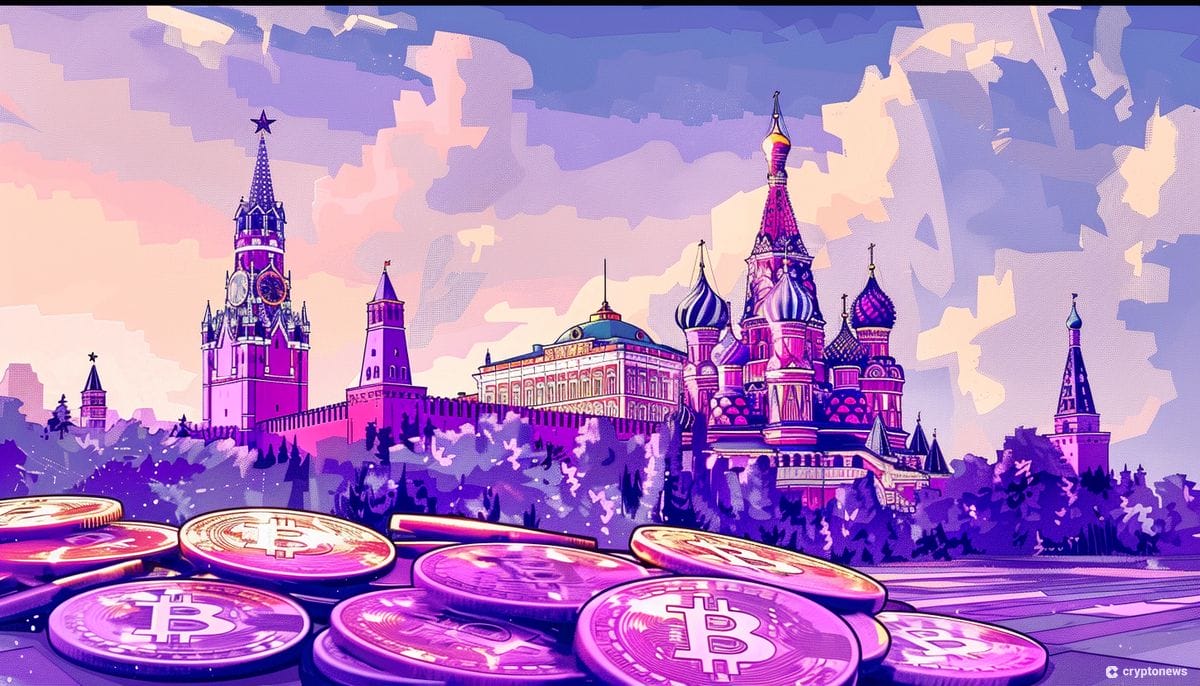
The Russian Central Bank says it has noticed a significant increase in its citizens’ transactions on crypto exchanges and peer-to-peer crypto trading platforms.
According to Russian media outlet RBC, the bank released a financial stability report and made several observations about Russian citizens’ cryptocurrency transactions.
The bank described the trends it has noted between Q4FY2023 and Q1FY2024.
The regulator wrote that “total web traffic of Russian users on the websites of the largest cryptocurrency platforms” increased by 16.4% “compared to the second and third quarters of 2023.”
Russian Central Bank: Citizens more active on cryptocurrency platforms
According to the bank, Russians visited cryptocurrency exchanges and P2P sites a total of 104.6 million times.
The monthly average number of unique Russian IP address holders of “major cryptocurrency exchanges” also grew by 15.1%, according to the bank.
This means that 7% of all traffic on these major overseas crypto exchanges originates from Russia, the bank added.
However, this is still far short of the 9% peak the bank reported for Q1FY23.
The bank said it used a tool called “Transparent Blockchain” for the calculations.
The tool was developed by the Federal Financial Supervisory Service (also known as Rosfinmonitoring) to combat money laundering using crypto assets.
Russian authorities claim that Transparent Blockchain will allow them to determine the “true” identities of cryptocurrency users across multiple blockchain protocols.
The Russian parliament has proposed banning the organization of cryptocurrency circulation and promotion in Russia from September 1, 2024. Only miners and projects approved by the Central Bank will be able to obtain the rights. However, the proposal…
— Wu Blockchain (@WuBlockchain) April 29, 2024
The report suggests that Russians continue to have an interest in high-value crypto assets like Bitcoin (BTC) and Ethereum (ETH), and they also appear to be using U.S. dollar-pegged stablecoins like USDT and USDC.
In total, transactions potentially attributable to Russians exceeded $50.2 billion in the same period.
The analysts noted that this includes not only cryptocurrency transactions but also P2P payments, remittances and “payments for goods and services.”
Regulators warn that cryptocurrencies are dangerous
RBC noted that the Russian central bank's report “does not publish a list of cryptocurrency platforms it monitors.”
However, he added that “previous central bank financial risk reports” also included data on platforms such as Binance, Bybit, MEXC and KuCoin.
Part of the surge in trading may be due to Binance's withdrawal from the Russian market.
The bank believes that at the time of its withdrawal, Binance controlled nearly half of the country's cryptocurrency market.
The bank also warned Russian crypto users of the “dangers” and “risks” associated with holding cryptocurrencies in Russia.
“The risks associated with sanctions from unfriendly countries need to be assessed,” the report said.
The US has imposed further sanctions on Russia, this time targeting multiple crypto-related entities and individuals for potential tax evasion aimed at funding Putin's Russian invasion of Ukraine. https://t.co/c8uQC1K7FB
— Cryptonews.com (@cryptonews) March 26, 2024
The company argued that Russian holders of USDT and USDC risk “losing access to their funds” amid rising tensions between the West and Moscow.
The bank said such losses were ” [Russians] It has been blocked by the stablecoin issuer.”
This week, Council of Europe The decision to use the proceeds from immobilized Russian assets for Ukraine.
The decision allows the special revenues from the Russian Central Bank's fixed assets to be used to support Ukraine's most urgent needs.
— European Commission (@EU_Commission) May 26, 2024
RBC noted that regulators in the U.S. and the U.K. are stepping up scrutiny of “transactions using stablecoins” as they “impose increased scrutiny on cryptocurrency exchanges.”
The bank further warned that “unfriendly” governments may order cryptocurrency exchanges to “strengthen the management of user transactions, including within the framework of sanctions restrictions.”
However, in its “recommendations” to Russian “financial institutions,” the bank hinted at upcoming Russian restrictions.
The bank “advised” domestic financial institutions “not to offer financial products linked to crypto assets.”
It also advised banks not to “advertise services related to the distribution of cryptocurrencies.”


